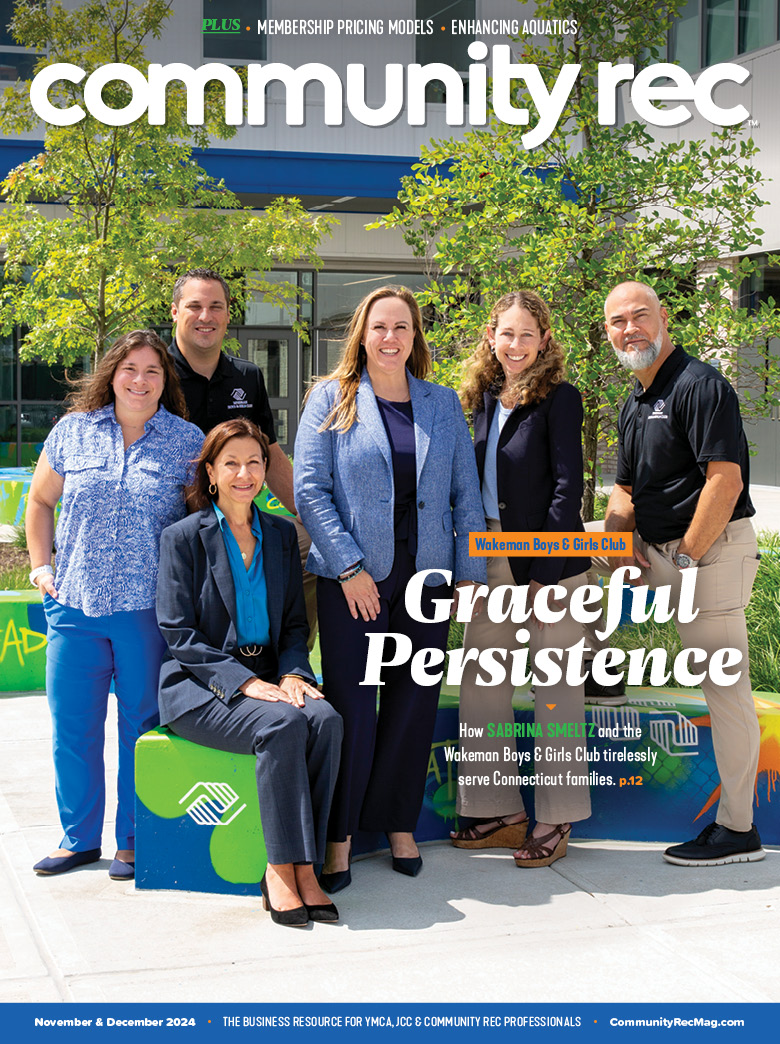Social responsibility is a practice that prioritizes positive social impacts in the community, often putting people first. The basic goal is to improve communities – both local and throughout the world – by including social, environmental and business governance considerations within all strategic decisions.
This effort includes promoting diversity and inclusion, creating prosperity and respecting human rights. In most cases JCCs and YMCAs usually craft a focused mission statement, which is typically developed in concert by its volunteer board of directors and paid professional staff. The mission of the organization in an ever-changing environment basically describes the reason why they exist, what business they are in and what purpose and constituencies they serve.
Even though most nonprofits have a mission statement, usually no two are alike. However, there is a common theme that runs through most nonprofit’s mission statements which is to improve and strengthen the condition of its community and the people within. To deliver unique programs and/or creative services to help change people’s lives for the better. It’s all about making the community a safer and better place to live.
Serving local communities and the act of social responsibility is an advantage with working in a nonprofit organization. There is a lot of pride to be gained with doing the right thing and making a difference. Giving back is one of the easiest, yet most fulfilling acts a person can do. When you are bettering the environment of your local community and enriching the lives of youth, it touches your heart.
The YMCA places social responsibility as part of their mission. They know that when diverse populations can work as one, they move people and communities forward. That’s why the Ys are committed to providing support to their neighbors and providing opportunities for kids, adults and families in the name of stronger communities.
The Y is all about meaningful change; individuals need ongoing encouragement and tools. According to the YMCA website, the goal of the Y is to provide the resources communities need to address the most pressing social issues: child welfare, education, employment, housing and substance abuse. The Y works to make sure every child, family and community has what they need to achieve their best.
What does social responsibility mean to you? Does it mean giving back? How about strengthening a community in which you live? If your answer was yes to these questions, then you were correct. Social responsibility is the “obligation of management of an organization to make decisions and take actions that will enhance the welfare and interest of society.”
Businesses and corporations who fully appreciate the value of social responsibility also understand how it helps individuals in need and organizations – particularly nonprofit agencies – survive. Especially for professional sport franchises and most businesses today, there has to be more to their existence than just making money.
According to Harvard Business School, “Nearly 70% of employees say they would not work for an organization without a strong purpose. Ninety percent of employees who work at companies with a strong sense of purpose say they’re more inspired, motivated and loyal. And 92% of employees who work at a socially responsible company say they would be more likely to recommend their employer to those in their network who are looking for a job.
Some organizations that understand the value of giving back to their home communities include National Football League and the NBA Cares program. The National Football League sponsors the United Way and their mission is “to improve lives by mobilizing the caring power of communities around the world to advance the common good.”
The NFL and the United Way have been partners in this social responsibility program for over 35 years. The National Basketball Association (NBA) founded NBA Cares in 2005. The mission is to “demonstrate leadership in social responsibility through philanthropy, hands-on service and legacy projects.”
Over the years, social responsibility has gained traction and credibility. It is now recognized that people, planet and profit are mutually inclusive. Just as quality leads to profit, responsibility leads to sustainable profit. Trends have moved from corporate social responsibility programs, to sustainable development, to sustainability, to social responsibility.
Sustainability is an ideal state, as is quality an ideal state. The aims and ideals of social responsibility as a path to sustainability make social responsibility a natural and progressive extension of the quality practitioner’s professional competency.
It is my belief the reason nonprofit agencies exist is to “make a difference,” to improve the condition and to strengthen the community in which we live. It is important nonprofit organizations work in concert with corporations and businesses to ensure our communities stay safe and strong.
For a nonprofit to survive it must have a compelling mission, which is often matched with compelling jobs and can significantly improve the prospects for recruiting the best people with the best attitudes. These people can then deliver on developing the most powerful relationships with one’s constituents.










